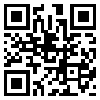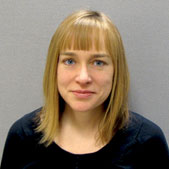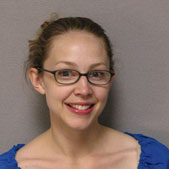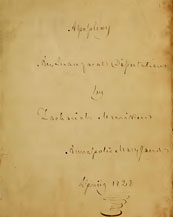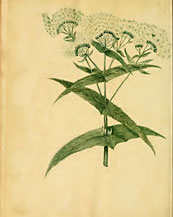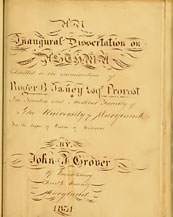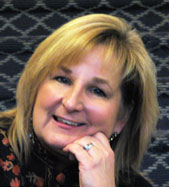
Executive Director
Even though the University’s fiscal year starts on July 1, around the Library we really see the beginning of the academic year as our official start. So, welcome to the new members of our community, and welcome back to our old friends and colleagues. The HS/HSL is always a busy place, but as we look into our crystal ball for the upcoming year, we will be focused on a lot of different things. Our priorities for this year:
- Ease of access. Soon we will be able to offer “single sign-on” as the method for logging into our resources from offsite. No more 16-digit barcode… just your UMID. Thanks to our colleagues in CITS and UMCP ITD for their help on this project. See article below.
- Ease of discovery. By December, we hope to introduce a “discovery tool,” allowing our customers to find multiple types of library resources (scholarly articles, books, reviews, images, and more) on their topic with just one search. We are going to need a name for this tool, so watch for our contest!
- Access redesign. To support the discovery tool, we will need to redesign our web site – lots of work, but it is time!
- Resource Sharing. Slow but steady progress towards sharing resources among the libraries at our campus and College Park is being made. It is very difficult and time consuming to identify areas of intersection and collaboration and then renegotiate licenses to allow this sharing
- Research support. Through funding from the National Library of Medicine, we are discovering best practices for supporting the research enterprise. This is interconnected in so many ways to our campus efforts to secure a CTSA (Clinical and Translational Science Award) and develop an informatics core. See article below.
- Revitalizing the conversation. We will identify new ways to engage our constituents in the life of the library through town halls, focus groups, advisory conversations, and a new strategic plan.
- Regional outreach. We have entered year two of our five-year, $11.5 million contract to serve as the home for the Southeastern/Atlantic Region of the National Network of Libraries of Medicine. This contract advances the work of the National Library of Medicine throughout 10 southeastern states, Puerto Rico, the U.S. Virgin Islands, and Washington, DC to health professionals, community-based organizations, consumers … anyone needing health information!
- Community outreach. Our other three-year grant (to develop a curriculum focusing on the use of health information to reduce health disparities) has entered its second year. We will continue to work with students from Vivien T. Thomas Medical Arts Academy over the course of the academic year. A paper on the project has been accepted for presentation at the American Public Health Association meeting this fall in San Francisco.
- Building modifications. New technology on the first floor. Enhanced teleconferencing and media in the conference rooms. Spiffed up teaching labs. A potential home for informatics.
- Building our unique digital presence through our digital archive. In addition to the inclusion of significant campus resources, we are digitizing portions of our historical collection in preparation for…
- Our 200th anniversary! Founded in 1813 through the acquisition of Dr. John Crawford’s collection, the HS/HSL is the founding library in the USM and one of the oldest medical libraries in the United States. In 2013, we will begin our celebration of the past, present and future of our Library with programs, events, and exhibits.
Whew! We will be busy. We are looking forward to the energy of a new year and seeing and meeting everyone in person or virtually. Welcome!































